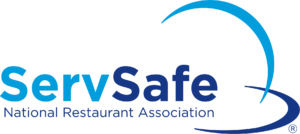By Paul Schlienz
You can’t have hospitality without customer service, and you can’t have customer service without training.
“Our customers expect us to be top notch,” said Jerry Lynch, general manager of Spokane’s N. Division Street Arby’s. “For us to be able to deliver on a promise at Arby’s of high-quality food, we have to train all the time, especially our top people, because they set the standards on the floor every minute of the day.”
Lynch is not the only hospitality operator who understands the value in investing in employees through training.
“It’s common sense,” said Donny Bocksch, owner of Papa Murphy’s Take ‘n’ Bake Pizza outlets in Grays Harbor and Thurston counties. “The more you invest in your employees, the more productive they will be, but also, the more loyal they will be.”
[expander_maker id=”1″ more=”Read more” less=”Read less”]
The many faces of training
Training encompasses many activities to teach employees new skills and reinforce old ones. It can include simple observations of how experienced employees do their jobs, role-playing exercises, in-person and online courses and coaching.
“We do a seven-day orientation and training at Arby’s,” Lynch said. “Two of those days are a sit-down orientation, including paperwork. Five days are one-on-one training with a trainer to help new employees understand the standards, observe how an expert does things, learn directly from a coach, practice the repetitions and slowly become proficient on their own. Those five days of training are our largest investment. We spend hundreds and sometimes thousands of dollars per month training our new employees.”
Warren Beach, vice president of operations at SMJ Management, Inc., which owns Holiday Inn Express & Suites hotels north of Seattle, says the training process starts during the initial job interview where he looks for a dynamic personality that would fit in well in a hospitality environment where great customer service is essential.
Beach said, “I actually tell my interviewees, ‘What I’m seeing today is why I’m hiring you. So, make sure what you’re putting across today is what you continue to do as an employee.’”
Once hired, Beach his new employees receive online training. Then they start learning directly from experienced employees.
“We’ll have the new employees shadow someone who’s been on the job for a while to do on-the-job-training for a couple of weeks until we feel comfortable that they’re ready to do what they need to do,” Beach said. “It’s also very important that employees understand why they’re doing things a certain way.”
Beach also says it’s important for employees to feel empowered to make decisions, and provides coaching, not punishment, if an employee makes a wrong decision.
Many restaurants send employees for ServSafe® Manager Certification, which verifies that a manager or person-in-charge has sufficient food safety knowledge to protect the public from foodborne illness.
“We send a couple of our employees to ServSafe Manager training, hosted by the Washington Hospitality Association,” said Jesse Eggers, executive director of CARDAN Hospitality, Inc., which owns IHOPs in the Spokane area. “IHOP has a requirement that managers be ServSafe certified, but we’ve always gone above and beyond the requirement. Our employees have to protect the food safety for the customers. Those leaders, who have received the training, are going to pass on their knowledge to others because that’s what leaders do. Leaders impact other people.”
Risk management
Training helps employees identify risks and avoid them.
“With training, risks are identified more quickly and are nipped in the bud,” Lynch said. “Because our management is thoroughly trained, if they see something, they’re going to be throwing up red flags.”
Keeping your best people on board
Another benefit of training: increased employee loyalty and reduced turnover.
“If you invest in employees, you’re showing them that they’re worthwhile,” said Mike Lewis, supervisor/district manager of the Tumwater Domino’s Pizza. “It gives them loyalty.”
Ryan Utesch, general manager of Jersey Mike’s, in Bonney Lake, echoes this thought.
“Training helps you feel the company’s commitment to you,” said Utesch. “When your company invests in training, you know that it wants you to grow and become part of something good.”
While Eggers said not all training investments lead to a long-term relationship with an employee, he knows from personal experience that training does contribute to employee loyalty.
“I worked in other places before IHOP,” Eggers said. “I’ve been here for 22 years. I don’t know that I would have been here for more than a summer job if investing in me hadn’t happened. If you talk to the vast majority of people who’ve stuck around and been successful, part of being successful is feeling successful, and that isn’t going to happen without having somebody show you how to do the job properly through training.”
Lynch also says training helps retain employees at Arby’s.
“Training definitely helps keep our turnover rate down and increases our long-term loyalty,” Lynch said. “We have quite a few employees who’ve been with us for 10, 20 and 30 years, like me. I’ve been with Arby’s 34 years.”
Lynch, however, insists that not all turnover is necessarily bad, and that Arby’s develops skills that are transferrable to other industries through its training process.
“We had a woman who was an assistant manager for me at the downtown Spokane Arby’s, in the 1990s,” Lynch said. “She studied Microsoft programming and coding and went to work for the company on its Redmond campus for around 14 years. She was a leader over there, and told me, ‘Jerry, you taught me more about managing people than Microsoft ever did, and every position I was in at Microsoft, I was a group leader, a team leader or a whole division leader because of what I learned about managing people at Arby’s.’”
Ultimately, however, this former employee left Microsoft and returned to Arby’s.
“She left the Seattle area and came back to Spokane,”
Lynch said. “She’s back working with me as an assistant manager again.”
Training options
There are many options for training employees. One of the best places to start is the Washington Hospitality Education Foundation. The Education Foundation sponsors ongoing training, including ServSafe Manager, ServSafe® Alcohol, ServSafe® Allergen, Allergy Safe Certification and Workplace Safety as well as providing resources to other training needs and options. For hotel employees, the Education Foundation offers Guest Service Gold, position certifications (front desk agent, housekeeping, etc.) and human trafficking identification and prevention.
For more information, contact Alyssa Flores at .
[/expander_maker]














